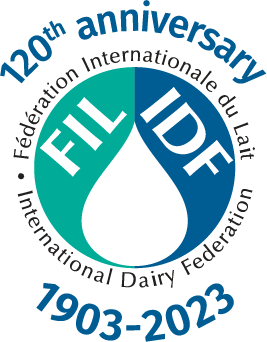
IDF’s leadership in upcoming international events
After actively participating in the UNFCC COP conferences, as well as at the UN Food Systems Summit, and other relevant international meetings, IDF has grown in expertise to provide leadership for the global dairy sector’s positioning and participation at global summits involving the role of the dairy sector in food production, sustainability and environmental issues.
During the second half of the year, there will be relevant international summits that directly or indirectly will address the global dairy sector’s role in sustainable food production and its environmental impacts, like the G20 -FAO International Symposium on Sustainable Livestock Transformation through One Health in India, the UN Food Systems Summit (UNFSS) Stocktaking in Rome, the UN Sustainable Development Goals (UNSDGs) Summit, that will be held in September in New York, the FAO Global Conference on Sustainable Livestock Transformation also in September, the FAO World Food Forum in October and the COP28 Climate, scheduled for November and December in Dubai. IDF is already working to provide its members with key communication and advocacy tools to brief their own government officials and delegations with science-based arguments and an accurate description of the dairy sector’s contribution to nutrition security and sustainable food systems.
In the particular case of the UN Sustainable meetings, IDF is elaborating a document with all the progress made by the dairy sector to achieve the different UN SDGs: the ones related to human nutrition and health, the ones related to climate action and environment protection and the ones related to the combat of poverty through the billion livelihood it provides globally. This document will be distributed to all the IDF members for them to share with the countries’ delegations that will attend the UN SDG summit.
With Methane emissions being one of the key topics discussed at COP27 and COP28, IDF is also developing an Advocacy Toolkit containing science-based information on the true nature of the sector’s emissions and its real impact on the environment. The arguments will not only reflect this impact in the context of all GHG emissions from the different sectors but also the positive effect that grazing and ecosystem services have on the environment. The advocacy toolkit will also include IDF’s position on the FAO report on integration of environment and nutrition in life cycle assessment of food items, published last February and that is available for free on the publications section of IDF’s corporate website.
As this IDF position paper states, “It is abundantly clear that comparing LCA data of foods on a simple mass or volume-based i.e., kg functional unit is not feasible and will lead to highly controversial outcomes as an incomplete picture of a food contribution to sustainable diets is provided (single domain)”
The papers conclusion is that a “nLCA study should report the quantities of as many essential nutrients as possible and aim to provide information on the nutritional quality and/or health impacts in addition to nutrient quantities”.
In other words, any assessment of the environmental impact of the global dairy sector’s emissions should be balanced with its contribution to human nutrition and health through the essential nutrients it provides. In a context of a fast-paced growing human population, the unequalled nourishing potential of Dairy should be taken into account when analysing global dairy’s environmental performance.






